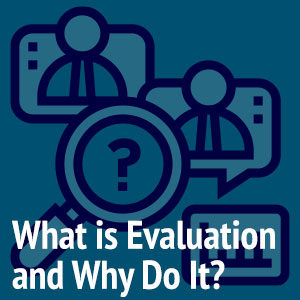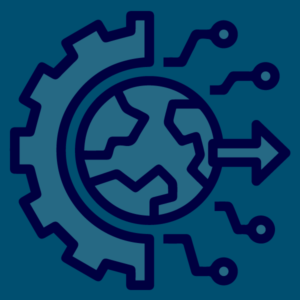 The other day, I conducted a focus group with disadvantaged youth. On behalf of a local workforce investment board, I interviewed a group of 16-24 year-olds about their use of cell phone and other hand-held technologies, in order to learn whether it would be possible to reach youth with career development programming via cell phone and electronic modalities. (In my 20+ years as a professional evaluator, I’ve conducted between 50 and 60 focus groups, with participants who range across the socioeconomic spectrum—from homeless women to college presidents.) As this focus group proceeded, I became aware of a two things. Many of the youth saw me, understandably, as an authority figure to whom they had to give guarded responses—at least initially— and whose trust I needed to earn. Additionally, I, too, felt vulnerable before the group of young people, who I feared might think I was uninformed about cyber culture and the prevailing circumstances of their age group. Each of us, in our own ways, felt “vulnerable.”
The other day, I conducted a focus group with disadvantaged youth. On behalf of a local workforce investment board, I interviewed a group of 16-24 year-olds about their use of cell phone and other hand-held technologies, in order to learn whether it would be possible to reach youth with career development programming via cell phone and electronic modalities. (In my 20+ years as a professional evaluator, I’ve conducted between 50 and 60 focus groups, with participants who range across the socioeconomic spectrum—from homeless women to college presidents.) As this focus group proceeded, I became aware of a two things. Many of the youth saw me, understandably, as an authority figure to whom they had to give guarded responses—at least initially— and whose trust I needed to earn. Additionally, I, too, felt vulnerable before the group of young people, who I feared might think I was uninformed about cyber culture and the prevailing circumstances of their age group. Each of us, in our own ways, felt “vulnerable.”
It occurred to me that focus group members’ sense of vulnerability would yield only if I myself became more open and vulnerable. Consequently, I abandoned my interview protocol, and began improvising candid and spontaneous questions. I also confessed my lack of knowledge about the technologies that young people often use so comfortably, as if it is an extension of themselves. I also redoubled my efforts to enlist the opinions of each member—especially those who seemed, at first, reticent to share their experience. As the focus group continued, I noticed that some of the initial reticence and reserve of my interlocutors began to dissolve, and even those who had not initially offered their opinions and experience, began to fully participate in the group. I also noticed that as I further expressed my genuine interest in learning about their experience, the sense of who possessed the authority shifted from me—the question-asker— to the youth in the group, who became experts on the subject I was interviewing them about.
The Necessity of Vulnerability in Education
Although all of us necessarily spend a lot of our lives shielding ourselves from various forms of vulnerability (economic, social, emotional, etc.), research is beginning to show that psychological vulnerability and the willingness to risk social shame and embarrassment, is essential for genuine learning, creativity and path-breaking innovation. In a recent TED presentation by Brene Brown a research professor at the University of Houston Graduate School of Social Work, who has spent the last decade studying vulnerability, courage, authenticity, and shame (Click here to listen). Ms. Brown discusses the importance of making mistakes and enduring potential embarrassment, in order to learn new things and make new connections. Brown highlights the significance of making ourselves vulnerable (i.e. taking risks, enduring uncertainty, handling emotional exposure) so that we can genuinely connect with others, and learn from them. Fear of failure and fear of vulnerability (especially fear of social shame) she says, too often get in the way of our learning from others. Moreover, we are often deathly afraid of making mistakes (See our recent post “Fail Forward: What We Can Learn from Program ”Failure”. You can also listen to the entire NPR TED Hour on the importance of mistakes to the process of learning, here. Ultimately, we must embrace, rather than deny vulnerability, if we are to connect, and thereby learn.
I’ve conducted research for most of my professional life. As I reflected on my professional experience, I realize that I’ve learned the most from people and situations when I’ve been willing to make myself vulnerable, to be fully present, and to authentically engage others. As in the above-mentioned focus group, and in many proceeding that, I recognize that when I’ve allowed myself to be open and available—to be unconcerned with knowing all the right answers, in advance— indeed, when I’ve made myself vulnerable and present—is precisely when I’ve learned the most important lessons and gained the most insight into a given phenomenon.
Successful program evaluations require effective, constant, and adaptive learning—often in fluid, uncertain, and continually evolving contexts. Genuine learning occurs when we make ourselves vulnerable enough to sincerely engage others, to connect with them, and to acknowledge that what we don’t know is the first step toward gaining knowledge, toward genuine knowledge. To learn more about our adaptive approach to evaluation visit our Feedback & Continuous improvement page.



